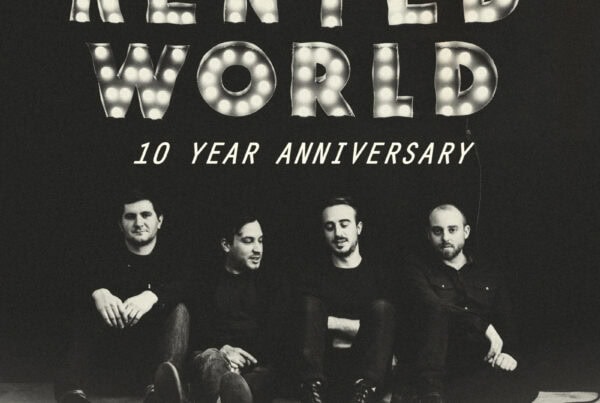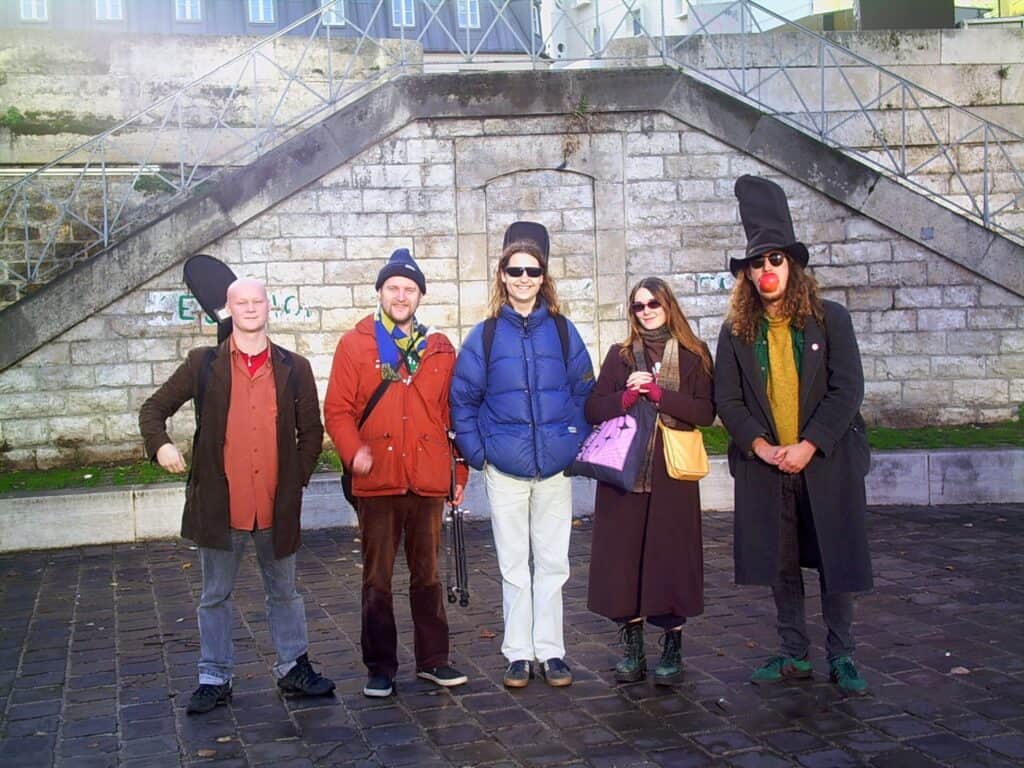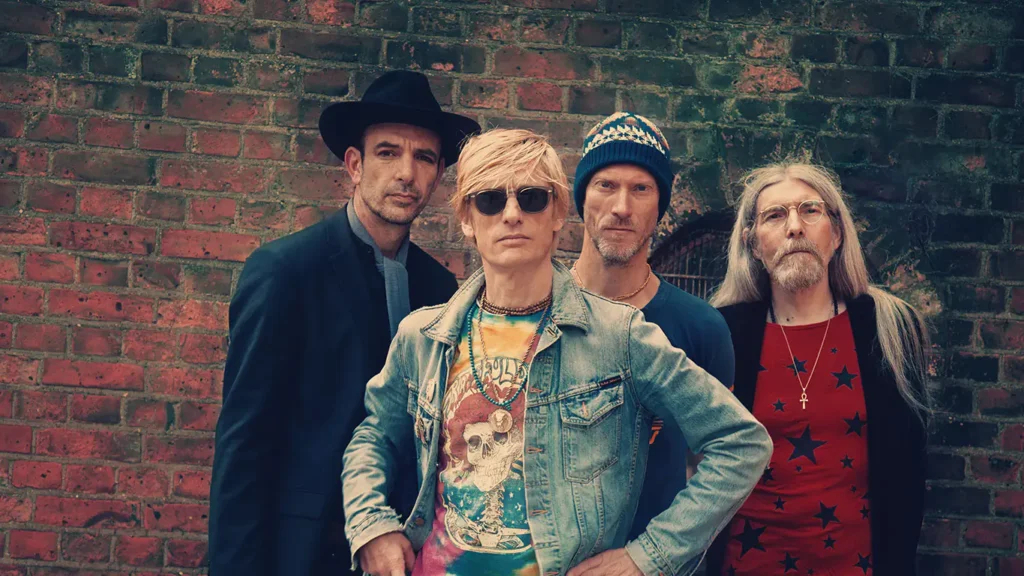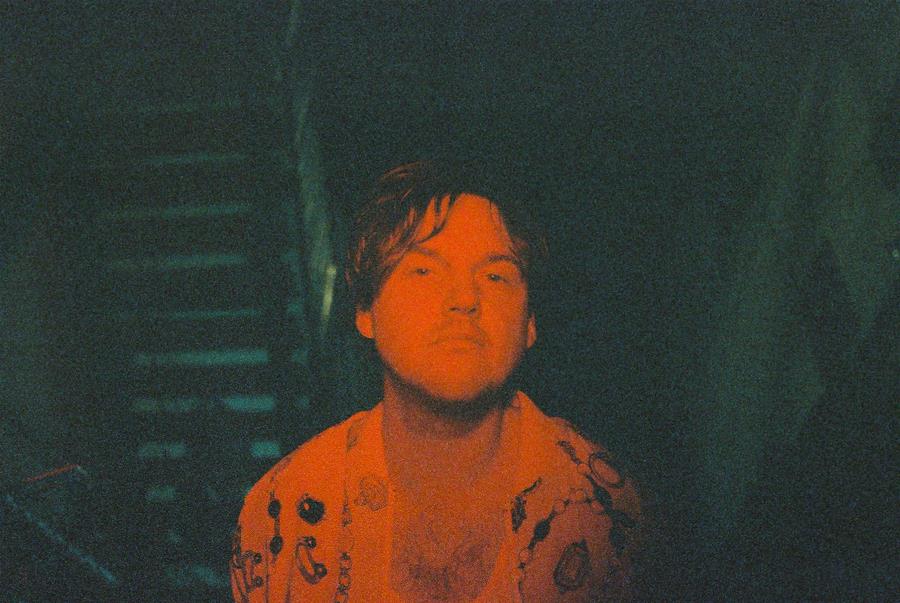With a sound is steeped in as much vulnerability as teeth-gritting defiance, Liverpudlian experimental metal group Loathe are the living embodiment of a band that like to weave perfect contradictions with an all-or-nothing attitude. Refusing to be pinned down and subscribe to any one category, theirs is a genre-spanning canvas with sweeping strokes of death-metal extremity and smatters of introspective shoegaze. I Let It in and It Took Everything, their latest record, is the physical expression of Loathe’s DNA.
Kadeem France, lead vocalist, believes that Loathe is as much about creating a space than a sound. Rather than calling themselves something as rigid as a ‘band’, he explains that Loathe is a fluid ‘collective’, defined by their passions and untethered by their instruments. “Loathe is a place for us to wholly and freely express ourselves”, he says. “Even the word, ‘Loathe’, that’s an emotion in itself. If any of us feel pissed about something, we all chip in and make a sick song. That’s how it has always been. We want Loathe to be its own world, and within that world, we want you to be able to express yourself freely and do what’s true to you.”
Creativity is born from the unlikeliest of places, yet oftentimes artists can feel marooned on their home turf, unable to break out of the comforting familiarity of their local scene. Liverpool is not famed for their metal scene, and yet, besides The Beatles and a handful of indie-rock prospects, Loathe have the distinction of taking their sound not only nationwide, but Stateside. Despite the US lapping their sound, which is of a calibre reminiscent of the vitriolic Deftones and Code Orange, no ambition is grand enough. “I feel like, for me – and I think for the band, as well – our vision is so out there. Not to sound lame, but I wanna take over the world,” France says. “I want to be out there. I don’t think we’ll ever rest until we get that.”
A satisfying feeling of success is something France doesn’t believe exists for Loathe. “We’re always pushing to be bigger and better, no matter what. As amazing as everything is that has happened to us, I don’t want it to phase us and slow us down. I still feel like our goals and dreams are still so massive that we’ll always be chasing them. We’ll never have that full, pure moment of success. I think that’s always been a thing with Loathe since day one. Some people may say that making a lot of money is success, but for me, I’d say success is just having people appreciate the art you make – genuine love and support.”
The way Loathe prize this love and support has been reflected in a ‘pay it forward’ attitude they’ve practised long before the band’s emergence in 2014. It was through going to gigs in their local scene as teenagers that France and Loathe’s guitarist and co-vocalist Eric Bickerstaffe would discover their future drummer, Sean Radcliffe. The metal scene, though a niche one, was thriving through the efforts of trailblazing groups such as Carcer City and Chasing The Legion. “They really inspired us to want to play heavier music because there wasn’t that many people doing that in Liverpool at the time,” France explains. “Now, to be on the level that we are and seeing that we’re inspiring people from home is an unbelievable feeling.”
This notion of being first and foremost a ‘fan’ is something France has never been able to shake – nor does he want to. “I was the fan who was there at every single show – every local show that was happening, I’d be there. The amount of times me and my mates would travel to Manchester and miss the last train back because we wanted to meet the band afterwards…”, he reminisces. “I still have that in me. But to be on the other side of that, now, has changed me in a lot of ways. It’s made me appreciate it and made me want to be more interactive with our fans. It’s about making it more of a family, as opposed to two different worlds. I don’t know, I’ll always be that kid – I’ll always be that fan.
Loathe as an emotional sanctuary is something that be sought by the listener, as well as the player. The sense of maturity that the band inherited as they evolved is something that has been wholly realised with their latest record, I Let It in and It Took Everything. “That record is probably one of the we’ve…” he hesitates, “ – not to say haven’t been true to ourselves in the past, but one of the first times we’ve come on the other side of an album and it felt pure. We haven’t regretted anything that we did. Everything we’d set out to do, we’d done. We made time for it as opposed to rushing everything. We’ve just learned to take another approach on how to create and have so many minds all working towards one goal.
One of the most emotionally incisive offerings on the record is “Two-Way Mirror”. Each member ensures that what they play serves an emotion, sculpturing a sound that is a tug-of-war between instrumental hellfire and inner fragility. It’s cinematic, almost, in its impact. Lyrically, it was inspired by a conversation between France and his dad. “I’m going to tell you a story about that,” he says. “Recently, on our UK headline tour, he came to see us. I think it’s the second time he’s ever seen us live. It was sold out in London, which was amazing. As soon as we started playing ‘Two-Way Mirror’, I literally pointed at him – and literally, I shit you not, the crowd spread open. I shook his hand, gave him a massive hug, and played the song. It was a mad moment.”
It’s a song which has not only been personally cathartic for France, but cathartic for so many who have listened to it. Scrolling through his playlists as we speak, he reels off names that have helped him weather a recent break-up. “clean.” by Static Dress is a soundtrack to the purging of feelings that he names straight away: “The lyrics, the melody… everything. It really helped me out a lot.” Another artist France admires is Earl Sweatshirt. “He paints such an amazing picture with his words. Sometimes, he describes my feelings better than I ever could.” The bleak, confessional world Sweatshirt creates in the likes of “Grief” and “Faucet” is one he often retreats to. His love for music is all-encompassing, with a dependence on it which is as central to hearing it as it is playing it.
The lockdown has afforded Loathe time to breathe and take stock of just how far they’ve come, breaking the rinse-and-repeat nature of recording and touring. Don’t mistake this for inertia, though. The band have been talking more than ever. “We’ve been having a lot of creative, cool and interesting talks about what’s next for us, which is exciting,” France shares. Their next project is unexpected.
With an instinct for aesthetics, Loathe have carefully crafted a multi-sensory world that extends beyond sound. They plan to venture into filmmaking, merging the realms of entertainment together. “Nothing’s in fruition yet, but we’ve just had the conversation that we know the right people to work with – we’re close friends with them. It’s not just a business relationship; we have similar interests. We’ve always thought if we just put our heads together, we could make something really special, like a short film – just something we’ve never done before.”
In their music, there is something distinctly Lynchian with their carefully woven metaphors and arcane symbolism. This is the kind of world they want to create. “We really like to encompass a feeling when you see or hear anything to do with Loathe,” France explains. He tells of the golden skies of GTA: San Andreas and the seedy glamour of New York in the seventies being a strong visual influence – even the macabre hellscape of Silent Hill. “We’ve always went in it with an approach like, ‘Imagine if this was a soundtrack for a Satan scene in the movie, does this hold that feeling?’”
Recently, though, France shares that more than anything, he has been self-reflecting. For a while, the touring life is the only one they have known, with the gulf between friends and family ever-widening as the world becomes their oyster. “There’s amazing times, and there’s terrible times,” he acknowledges. “We had amazing times – some of the best times I’ve ever had in my entire life. And then obviously we’ve had our really hard times, with long drives and missing family, bickering and arguing between band members and stuff in the van. But the terrible times make the amazing times ten times even more amazing.” Even in times of illness when his body felt like a deadweight, there was something primal, something imperative about his passion that roused him to the stage for some of the best performances of his life. “It’s the adrenalin to do what you love even in the harshest times,” he says.
But most of all, he remembers crossing the states, as night turned to morning, talking about anything and everything. He tells me, “We were driving for hours – obviously, it was a hard drive – finally got to Florida, pulled up. Everyone else in the van was asleep, we pull up by this beach and the sun was just coming up. We get on the beach, and it literally feels like the beginning of a movie, or something. We watched the sunrise, we were on the beach, we had that long drive with long conversations – just experiences like that, man. I don’t think I’ll ever experience that type of thing with anything else, other than touring.”
The vastness of their achievements France feels is dwarfed by a far wider, greater world – and he’s excited by it. “I appreciate where we are right now, but it makes me aware that there’s more work to do and we’re all here for it. We’re ready for the work.
Words: Sophie Walker | Interview: Dom Smith
Listen to the original chat below:






